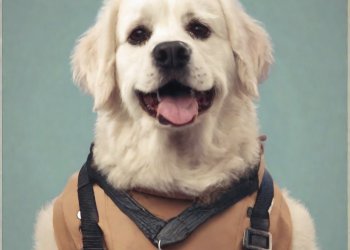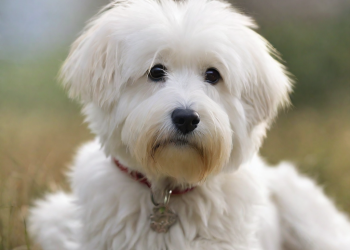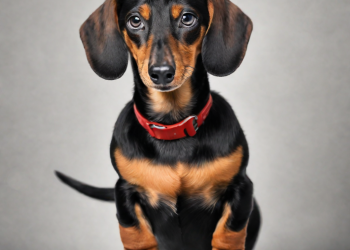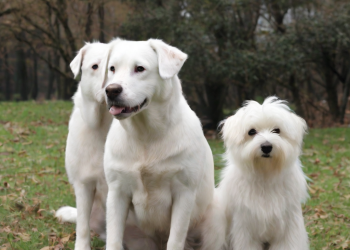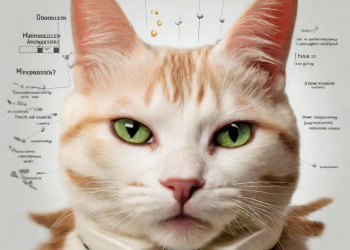Origin and history of the puli dog in Spain
The puli dog is a herding breed from Hungary that was introduced to Spain in the 16th century, where it quickly gained popularity in Spanish culture.
With its distinctive corded coat and hard-working temperament, the puli dog became an important part of rural life in Spain.
I researched the history of the puli perro in Spain and discovered how it has left a lasting mark on the culture and daily life of this country.
The puli dog
The puli dog is a unique and fascinating breed that deserves to be known by all dog lovers.
Compelling reason: Discover the unique characteristics of this breed, its history and why it is a loyal and loving companion for any family. Learn about their care, training, and how this breed can fit into your life. Don’t miss the opportunity to learn more about the charming puli dog.
Physical characteristics of the puli dog
He is a medium-sized breed with an average weight of 25 to 35 pounds. Its distinctive physical characteristics include:
Size and weight
They are medium in size, averaging 16 to 17 inches in height at the withers. Their weight varies between 25 and 35 pounds, depending on gender and physical build.
Coat and color
The fur is its most notable feature, forming dense tufts that give it a unique appearance. The most common colors are black, white, gray and rust, with variations in tone.
Distinctive traits of the puli dog
In addition to his characteristic coat, he has an alert and energetic expression. Their floppy ears and curled tail contribute to their charming and distinctive appearance.
Temperament and behavior of the puli dog
The puli dog is known for its unique personality and distinctive behavior. Below are some characteristics of his temperament:
Personality of the puli dog
Puli dogs are known for being loyal, intelligent and energetic. They have a strong will and are very protective of their families.
Energy and activity levels
Puli dogs are very active and need a lot of exercise. They love to run and play, so it is important to provide them with enough physical activity to maintain their health and happiness.
Relationship with other animals and people
Puli dogs tend to get along well with other animals if properly socialized from a young age. They are also affectionate with their owners and enjoy human company.
In short, the puli dog is a breed with an energetic, loyal and affectionate temperament, requiring a significant amount of exercise and socialization to thrive in a home environment.
Care and needs of the puli dog
Proper care of the puli dog is essential for its well-being and happiness. Here are some important considerations to keep in mind:
Proper food for the puli dog
The puli dog’s diet must be balanced and adapted to its specific nutritional needs. It is important to provide him with high-quality food and in the right quantities to keep him healthy and fit.
Exercise and recommended physical activity
The puli dog is an active breed that requires regular exercise to stay happy and healthy. It is important to provide opportunities for running, playing, and physical exercise to meet their activity needs.
Special care for the puli dog’s coat
The puli dog’s distinctive coat requires special care to keep it in good condition. It is important to brush his coat regularly to prevent matting and keep him clean and healthy. Additionally, it is advisable to schedule periodic baths and regular trims to keep their coat in optimal condition.
Training and socialization of the puli dog
The training and socialization of the puli dog are fundamental aspects to guarantee its well-being and appropriate behavior in the Spanish environment. Below are some important considerations:
Effective training methods
- The puli dog is known for its intelligence and willingness to learn, so training based on positive reinforcement is usually very effective.
- Consistency and patience are key when training a puli dog, as they tend to be sensitive to criticism and respond best to positive motivation.
- Early socialization is essential for the puli dog to get used to different situations and people, which will contribute to its balanced behavior in the future.
Importance of early socialization
- Exposing the puli dog to different environments, sounds, and people from an early age will help prevent shyness or aggressive behavior.
- Interaction with other dogs and animals is also crucial for the puli dog to develop proper social skills.
Common challenges in training the puli dog
- Due to its independent nature, the puli dog can show some stubbornness during training, so patience and consistency are key to overcoming these challenges.
- It is important to set clear limits from the beginning and be firm in training, without resorting to aggressive or coercive methods that could negatively affect their behavior.
In summary, proper training and socialization are essential to ensure that the puli dog becomes a balanced and obedient pet in the Spanish context.
Health and common diseases of the puli dog
The puli dog is generally a healthy breed, but like any breed, it can be prone to certain diseases and health problems. Some of the most common health problems affecting puli dogs include:
Most frequent health problems in the breed
- Hip dysplasia: This condition can affect puli dogs, especially as they age.
- Eye problems: Some puli dogs may develop cataracts or other eye problems throughout their lives.
- Skin problems: Due to their characteristic coat, puli dogs can be prone to skin problems such as dermatitis.
Preventive care and recommended veterinary check-ups
To keep your puli dog healthy, it is important to follow preventive care recommendations, including:
- Regular visits to the vet for health checkups and vaccinations.
- Control weight and diet to prevent obesity, which can aggravate health problems such as hip dysplasia.
- Regular coat care to prevent skin problems.
Life expectancy of the puli dog
In general, the puli dog is a long-lived breed, with an average life expectancy of 12 to 16 years. With proper care and good veterinary care, puli dogs can enjoy a long and healthy life.
The puli dog as a pet in Spain
Puli dog owners in Spain have shared very positive experiences about living with this unique breed. Some of the benefits of having a puli dog as a pet include:
Experiences of puli dog owners in Spain
Puli dog owners in Spain have highlighted the breed’s loyalty and intelligence, as well as its ability to adapt to different environments and lifestyles. Many have expressed that the presence of a puli dog in their homes has enriched their lives in many ways.
Benefits of having a puli dog as a pet
- Constant company and unwavering loyalty
- Ability to adapt to different environments and lifestyles
- Intelligence and willingness to learn and participate in activities
Considerations before adopting a puli dog in Spain
Before adopting a puli dog in Spain, it is important to consider the long-term commitment involved in caring for this breed. Some key considerations include the time and energy required to meet the puli dog’s exercise and coat care needs.
Puli dog breeders and associations in Spain
The puli dog has gained popularity in Spain in recent years, which has led to the emergence of breeders and associations dedicated to the breed. These organizations play a crucial role in the preservation and promotion of puli dogs in the country.
Recognized breeders of puli dogs in Spain
In Spain, there are several recognized breeders of puli dogs who strive to breed healthy and well-socialized specimens. Some of the most prominent breeders are located in regions such as Catalonia, Andalusia and Madrid, and are known for their commitment to responsible breeding of puli dogs.
Associations and clubs dedicated to the breed
In addition to the breeders, there are also several associations and clubs dedicated to the puli breed in Spain. These organizations offer resources, events and support to puli dog owners, thereby promoting community and proper care of the breed in the country.
Dog puli events and exhibitions in Spain
Puli dog lovers in Spain can enjoy events and exhibitions dedicated to the breed, where they have the opportunity to show their dogs, learn more about the history and standards of the breed, and connect with other enthusiasts. These events are a great way to celebrate and promote the beauty and versatility of the puli dog in Spanish culture.
Curiosities and myths about the puli dog
The puli dog, a breed with a long history and presence in Spain, is surrounded by curiosities and myths that have contributed to its mystique in popular culture. Below are some of the most notable legends and anecdotes related to this peculiar dog breed.
Legends and myths related to the puli dog
- The puli dog is said to have the ability to predict bad weather, making it an invaluable companion for shepherds in Spain.
- There is a belief that the puli dog is a guardian of the family and home, capable of detecting the presence of intruders with its keen sense of hearing.
Little-known curiosities about the breed
- The characteristic coat of the puli dog not only provides protection against inclement weather, but also makes it practically impervious to water.
- The puli dog is known for its intelligence and learning ability, making it an excellent work companion in herding and obedience activities.
Famous anecdotes starring puli dogs in Spain
- The story is told of a puli dog who, thanks to his bravery and loyalty, saved his family from a fire in their home, becoming a local hero.
- At dog show events in Spain, puli dogs often attract attention for their unique appearance and charisma, leaving a lasting impression on attendees.
These curiosities and myths contribute to the fascination surrounding the puli dog in Spain, consolidating its status as a unique and special breed in Spanish culture and society.
Tips to care for and enjoy the company of a puli dog
Recommendations for puli dog owners in Spain
If you are the owner of a puli dog in Spain, it is important to take into account some recommendations to guarantee its well-being and happiness:
- Provide you with a safe and stimulating environment so that you can develop your intelligence and natural abilities.
- Provide a balanced diet appropriate to their nutritional needs, taking into account their activity level.
- Carry out periodic veterinary check-ups to prevent diseases and keep their health in optimal conditions.
Activities and games recommended for the breed
The puli dog is an active and energetic breed that requires mental and physical stimulation. Some recommended activities and games for this breed include:
- Daily walks in open areas where you can run and explore.
- Intelligence and skill games that challenge your mind, such as searching for objects or solving puzzles.
- Obedience and agility training to keep it active and strengthen the bond with its owner.
Ways to strengthen the bond with a puli dog in the Spanish context
To strengthen the bond with a puli dog in the Spanish context, it is important to take into account its temperament and specific needs. Some ways to strengthen this bond include:
- Give him constant love and attention so he feels safe and loved.
- Participate in joint activities that reinforce mutual trust, such as training and practicing dog sports.
- Create routines and habits that provide stability and security, such as feeding schedules and walks.

